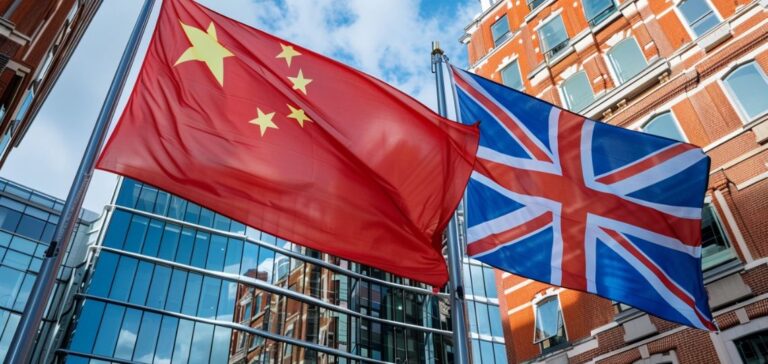The UK government is seeking to deepen its relationship with China in the energy sector while maintaining a critical stance on several sensitive diplomatic issues. In this context, Ed Miliband, the UK Energy Minister, met with the Director of the China National Energy Administration in Beijing as part of the UK-China Energy Dialogue. London views this dialogue as the first of a series of regular discussions aimed at accelerating the energy transition and strengthening bilateral cooperation.
A Strategic Energy Dialogue
The UK and China occupy contrasting positions on the global energy market. While London aims for a fully decarbonised economy by 2050, Beijing plans to achieve carbon neutrality by 2060, while still relying heavily on coal. According to official data published in February, China’s greenhouse gas emissions rose slightly in 2024, despite the country recording a record increase in renewable energy. This reality raises questions about China’s ability to meet its international climate commitments.
Ongoing Divergences
Beyond energy issues, Ed Miliband addressed sensitive diplomatic topics, including the situation in Hong Kong, the treatment of Uighurs, and forced labour in supply chains. London has also expressed concerns about China’s stance on the Russian invasion of Ukraine, which Beijing has never condemned. Despite these divergences, the UK government insists on the importance of maintaining an open dialogue with China on climate and energy challenges.
Towards Strengthened Exchanges
The UK Minister announced his intention to invite Chinese representatives to London later this year to continue the discussions. This initiative is part of a broader strategy by Prime Minister Keir Starmer’s government to strengthen the UK’s influence in international energy cooperation. London aims to balance its economic and diplomatic interests while consolidating its role in the global energy transition.






















